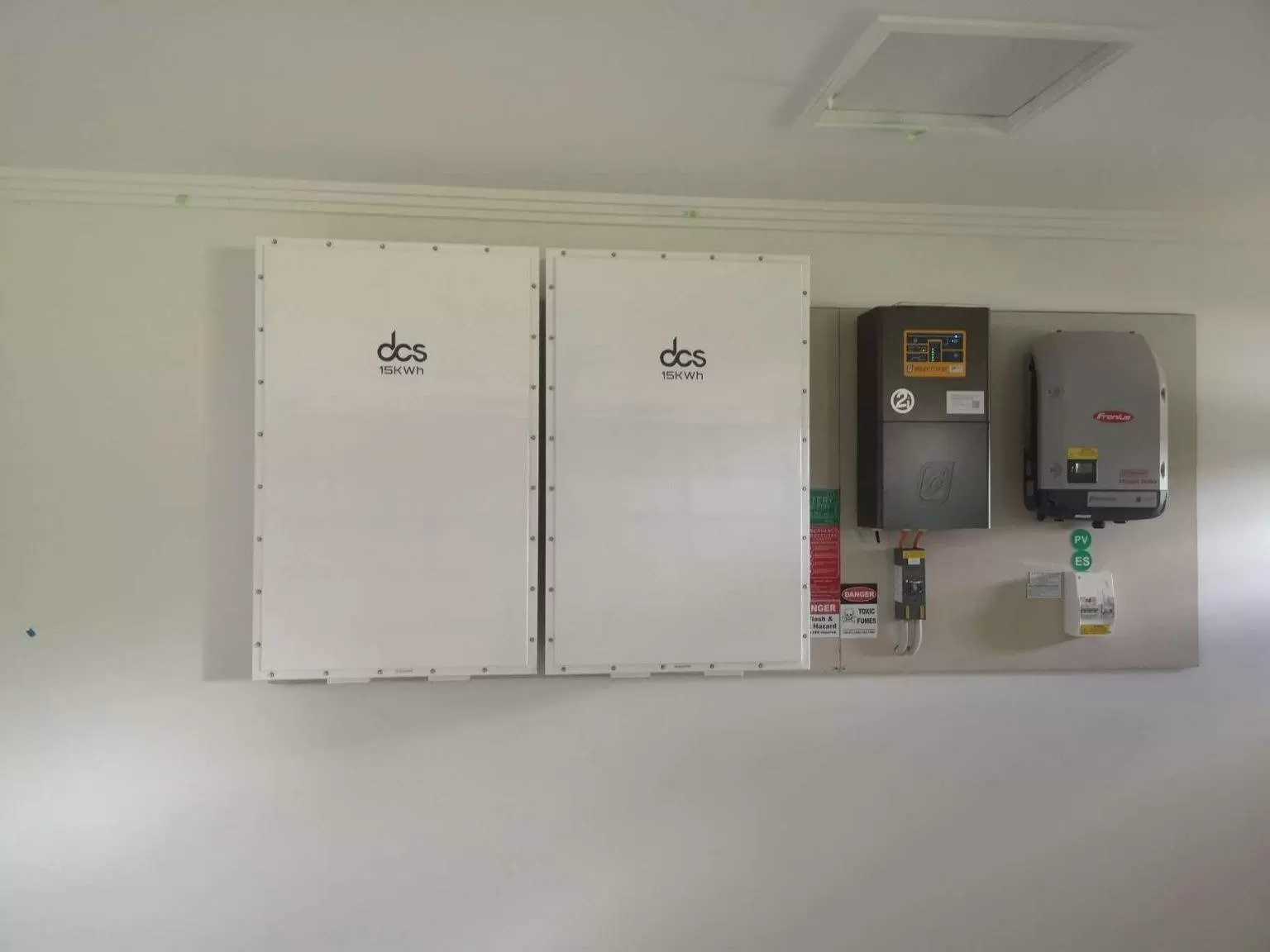Living off the grid is an exhilarating journey that many choose for its freedom, sustainability, and connection with nature. A crucial component of a successful off-grid lifestyle is selecting the best batteries for solar off grid systems. The correct battery stores energy efficiently and ensures that your household can rely on solar power even during periods of low sunlight. When choosing a battery, consider capacity, lifespan, and maintenance requirements to match your energy needs. Additionally, understanding the differences between battery types like lead-acid, lithium-ion, and salt water can help you make an informed decision tailored to your off-grid lifestyle.
Different Types of Batteries for Solar Off-Grid Applications
When selecting batteries for your off-grid solar power system, it’s essential to understand the distinct characteristics of each type:
- Lead-Acid Batteries: These traditional options are popular due to their availability and cost-effectiveness. Flooded batteries require regular maintenance and are available in flooded and sealed (AGM or Gel) varieties, whereas sealed batteries offer more convenience but at a higher price.
- Lithium-Ion Batteries: Lithium-ion batteries are lightweight and compact, known for their high efficiency and long lifespan. They can handle deeper discharges without damage, making them an increasingly favoured choice among off-grid users.
- Nickel-Cadmium Batteries: Though less standard for solar setups, these batteries are exceptionally durable and can operate well in extreme temperatures. However, their higher cost and potential toxicity require careful consideration.
- Saltwater Batteries: As an emerging technology, saltwater batteries are environmentally friendly and safe. While they have a lower energy density compared to lithium-ion batteries, their long lifespan and use of abundant materials make them a sustainable option.
Factors to Consider When Selecting the Right Battery Type
Choosing the best batteries for solar off-grid applications involves several key considerations. Capacity and Depth of Discharge (DoD) are crucial; capacity is measured in amp-hours (Ah) and indicates the amount of energy a battery can store, while DoD specifies the percentage of the battery’s capacity that can be safely used. Efficiency is another important factor; it reflects how much energy is lost during charging and discharging. Lithium-ion batteries generally offer higher efficiencies compared to lead-acid options. Lifespan is also significant, as it affects long-term investment value.
Typically, lithium-ion batteries outlast lead-acid batteries. Temperature tolerance must be considered based on the climate where the batteries will be used, as some types perform better in extreme conditions. Additionally, consider the maintenance requirements of different battery types, as some, like flooded lead-acid batteries, require regular upkeep, while others are more maintenance-free. Lastly, cost is a significant factor, balancing upfront expenses against the longevity and performance of the battery system.
Best Batteries for Off Grid Solar Power
Choosing the best batteries for off grid solar power involves weighing multiple factors, including efficiency, lifespan, cost, and maintenance needs. Here are some of the top options:
Lithium-ion batteries: These are the top choice for many off-grid systems due to their high energy efficiency, long lifespan, and low maintenance requirements. Brands like Tesla Powerwall and LG Chem offer robust solutions that can handle deeper discharges and more cycles than other battery types.
Lead-Acid Batteries: These are still widely used for their reliability and affordability. They come in two primary types: flooded and sealed (AGM or Gel). Flooded lead-acid batteries require regular maintenance, while sealed options offer less hassle but come at a higher cost.
Nickel-Iron Batteries: Known for their longevity and durability, nickel-iron batteries can last decades with proper maintenance. They are resilient to overcharging and deep discharging, making them a reliable choice for long-term off-grid setups. However, they tend to be bulkier and more expensive.
Saltwater Batteries: Although relatively new to the market, saltwater batteries are gaining attention for their environmental friendliness and safety. They offer a long lifespan and are made from non-toxic, abundant materials, but they typically have a lower energy density than lithium-ion options.
Selecting the best batteries for your off-grid solar power system requires careful consideration of these factors to ensure you make the most informed decision.
How to Choose the Right Battery Based on Your Energy Needs
Choosing the correct battery for your solar off-grid system starts with thoroughly assessing your energy consumption patterns. Begin by calculating your daily energy usage in kilowatt-hours (kWh) and consider seasonal variations that might affect your energy needs. This will help you determine the total battery capacity required. Next, evaluate the peak energy demand and the highest Power your system will need at any given time.
Factor in the depth of discharge (DoD) suitable for your lifestyle; lithium-ion batteries can be discharged more deeply than lead-acid batteries, offering more usable energy. Consider your system’s autonomy, which is the number of days you want your batteries to provide Power without any solar input, especially during periods of low sunlight. This is crucial for ensuring reliability in different weather conditions.
Also, consider the space available for battery installation and the weight of the batteries, as this can impact your choice between more compact lithium-ion batteries and bulkier options like nickel-iron batteries. Finally, align your choice with your budget while considering the long-term savings from lower maintenance and replacement costs. By addressing these factors, you can select a battery system that meets your energy requirements efficiently.
Maintenance Practices to Extend Battery Life
Ensuring the longevity of your off-grid batteries involves adhering to a few essential maintenance practices. Regularly inspect your battery connections to identify and clean any corrosion and ensure all connections are secure. For lead-acid batteries, monitoring charge levels is crucial to avoid deep discharges that can significantly reduce lifespan. Equalization charges benefit flooded lead-acid batteries, as they help balance the battery cells and prevent sulfation.
Temperature management is another critical factor; batteries should be stored in stable locations to avoid performance degradation due to extreme heat or cold. Additionally, keeping your batteries clean and dry can prevent moisture and dirt buildup issues. Following these maintenance practices ensures that your off-grid battery system operates efficiently and lasts for many years.
Regular monitoring and testing of battery performance can also help identify potential issues early, allowing for timely interventions. Investing in a quality battery management system can further automate maintenance tasks and provide valuable insights into your battery health. These systems often include real-time monitoring, automated alerts, and data logging, which can be invaluable for optimizing battery performance. By integrating such technology, you can proactively address issues and adjust usage patterns to maximize your battery’s lifespan.
Tips for Storing Batteries Safely and Efficiently
Optimal Storage Environment
Store batteries in a cool, dry place away from direct sunlight. High temperatures can accelerate the aging process and reduce battery efficiency, while moisture can lead to corrosion and other damage.
Proper Ventilation
Ensure adequate ventilation in the storage area, especially for lead-acid batteries, which can emit gases during charging and discharging. Proper airflow can prevent the accumulation of potentially hazardous gases.
Regular Monitoring
Periodically check your batteries’ state of charge and health. A battery monitoring system tracks performance metrics like voltage, temperature, and charge cycles. Early detection of issues can prevent costly damage.
Secure Placement
Batteries should be securely placed on stable surfaces to avoid movement or accidental tipping. Consider using battery enclosures or cabinets designed to contain leaks and spills for added safety.
Labelling and Organization
Clearly label your batteries and organize them by type and installation date. This practice helps in maintenance routines and ensures that older batteries are used first, maximizing their lifespan.
Emergency Preparedness
Keep a fire extinguisher and spill cleanup kit nearby. Quick access to these tools can mitigate damage and ensure safety in the event of a battery failure or leak.
Avoid Metal Tools
Avoid using metal tools that could cause short circuits when working with batteries. Instead, use insulated tools designed explicitly for battery maintenance to reduce the risk of accidents.
By adhering to these tips, you can store your off-grid solar batteries safely and efficiently, prolonging their lifespan and ensuring reliable performance.
Cost Efficiency and Budgeting for Battery Systems
Navigating the costs associated with solar off-grid battery systems can be challenging, but strategic planning can make the process smoother. One crucial factor is the balance between initial investment and long-term savings. For example, while lithium-ion batteries often come with a higher upfront cost, their extended lifespan and superior efficiency can offset these expenses over time.
Additionally, look into any available financial incentives, rebates, or tax credits in your area that can reduce the initial costs of your battery system. Many governments and organizations offer programs to promote renewable energy adoption, which can significantly lower your investment. Another essential aspect is the correct sizing of your battery system. Oversizing can lead to unnecessary expenses, while undersizing may result in insufficient power storage. To avoid these pitfalls, accurately assess your energy needs and choose a battery capacity that aligns with your usage patterns.
Lastly, consider the total cost of ownership, including the purchase price, maintenance, and potential replacement costs. Batteries with higher efficiency and longer lifespans, like lithium-ion, might have higher upfront costs but can provide more excellent value over time through reduced maintenance and replacement needs. Considering these factors, you can budget effectively and ensure a cost-efficient investment in your off-grid solar battery system.
Batteries for Off Grid Solar Power
Batteries for off grid solar power are essential for storing the energy harnessed from the sun, ensuring a reliable power supply even when the sun isn’t shining. When choosing batteries, factors such as capacity, lifespan, and efficiency should be carefully considered to match your energy needs and usage patterns. Additionally, it’s crucial to evaluate the battery’s depth of discharge and charging time, as these will affect how effectively you can use the stored energy. Opting for batteries with a good balance of performance and cost can make your off-grid system economical and sustainable in the long run.
It’s also important to consider the environmental impact of the batteries, as some options offer more eco-friendly materials and recycling possibilities. You can tailor your energy storage solution to meet specific climate conditions and energy demands by selecting the right type, such as lithium-ion or lead acid. Lithium-ion batteries, for example, perform better in colder climates due to their resilience and efficiency. In contrast, lead-acid batteries are more cost-effective for larger systems with manageable temperature control.
Understanding these nuances helps ensure your off-grid solar setup is robust and aligned with your sustainability goals. Considering the geographic location and potential weather variations can further refine your battery choice, guaranteeing optimal performance throughout the year. Additionally, integrating intelligent monitoring systems can maximize efficiency by providing real-time data on battery health and usage patterns.
Conclusion
Selecting the best batteries for solar off grid living setup involves carefully assessing your specific needs, available technologies, and budget constraints. Balancing efficiency, lifespan, and cost is the key to a successful off-grid system. Lithium-ion batteries, with their high efficiency and long lifespan, are often a top choice, albeit with a higher initial investment. While more budget-friendly, lead-acid batteries require regular maintenance and a shorter lifespan. Nickel-iron batteries offer exceptional durability but come with higher upfront costs and bulkier designs, making them suitable for those prioritizing longevity and resilience.
FAQS
What Are The Most Important Factors To Consider When Choosing The Best Batteries For Solar Off Grid?
When selecting batteries, consider capacity, depth of discharge (DoD), efficiency, lifespan, temperature tolerance, and cost. These factors will determine the performance and longevity of your off-grid system.
How Often Should I Perform Maintenance On My Off-Grid Batteries?
The maintenance frequency depends on the battery type. Lead-acid batteries require regular checks and maintenance, such as monitoring charge levels and performing equalization charges. Lithium-ion batteries, on the other hand, need minimal maintenance.
Are Lithium-Ion Batteries Worth The Higher Upfront Cost?
While lithium-ion batteries have a higher initial cost, their long lifespan, high efficiency, and low maintenance requirements often make them a cost-effective choice in the long run.
| Related Business Listings |
| Contact Directory |
| Local Business Profiles |


